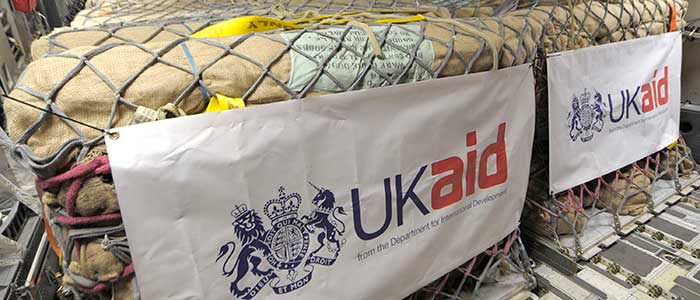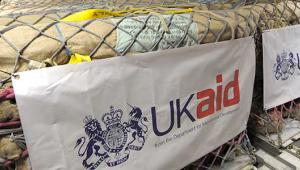The eurosceptic UK Independence Party, won the third largest share of the vote in Britain’s 2015 election. In a report published yesterday, it added its voice to an increasingly heated debate over the UK’s foreign aid budget, which equals around £12bn per year in line with 2015 legislation obliging the government to spent 0.7% of the country’s national income on aid.
Britain is currently only one of a handful of donors to meet this decades-old commitment, and is one of the world’s biggest and most respected in terms of its development efforts.
However, Lisa Duffy, UKIP’s foreign aid spokeswoman, accused the government of prioritising “ineffective” aid spending over its “basic obligations to British citizens”.
“This has to change, not just so we can help those struggling in our own country, but so we can act in the best interests of developing nations too,” she stated.
Duffy said UKIP’s report added to an “increasing body of evidence” suggesting that aid is not the best path to prosperity and that decades of aid have failed to grow the economies of poorer nations.
Instead, she stressed that in a post-Brexit world, the government should focus on forging new trade deals with the developing world in order for it to prosper.
The paper called for a cut in foreign aid spending to £2.5bn per year, with a focus on emergencies and disease. The remaining current aid budget budget should be refocused back towards public services in the UK.
Duffy said: “It’s time to ditch the out-dated 0.7% aid spending target; relieve global poverty with a hand up, not a hand out; make cutting trade barriers with the developing world a priority; and fill the funding gaps in our own public services.”
The UK’s Department for International Development recently published a strategy on economic development, and has put a greater emphasis on trade since coming under the stewardship of international development secretary Priti Patel last year.
However, the growing frequency of natural disasters and conflicts and the impact of climate change has also led to unprecedented need. DFID pointed out that alongside trade agreements, aid is needed to deliver basic necessities to those affected and deliver education, jobs and healthcare to those affected.
It stressed that as the country prepares to leave the EU, it is “more important than ever” that it retains its influence on the world stage.
“The UK aid budget invests in our security and prosperity and is a key part of Global Britain’s leadership,” a DFID spokesperson said in a statement.
"All DFID programmes and partners are subject to rigerous checks and scrutiny to ensure we reach the world's poorest and most vulnerable, while also achieving the best for UK taxpayers," they added.
With the US – the world’s biggest aid donor in cash terms – turning inwards under the new administration of president Donald Trump, the continued commitment of countries like the UK will be critical for the aid and development sector.
Already, Trump’s reinstatement of the ‘global gag rule’ – which prevents US funding for foreign NGOs that promote abortion – threatens billions of dollars of funding for organisations around the world.
The Guardian reported yesterday that the UK will lead efforts to secure extra funding for family planning by hosting a summit in July. The summit was reportedly planned before the announcement of Trump’s executive order, but will now form a key part of the response to it.














